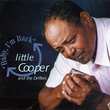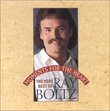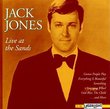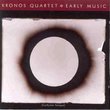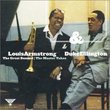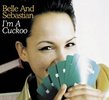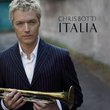| All Artists: Beethoven, Gilels Title: Piano Concertos 1-4 Members Wishing: 1 Total Copies: 0 Label: EMI Classics Release Date: 11/26/1996 Genre: Classical Styles: Forms & Genres, Concertos, Historical Periods, Classical (c.1770-1830), Modern, 20th, & 21st Century, Instruments, Keyboard Number of Discs: 2 SwapaCD Credits: 2 UPC: 724356950627 |
Search - Beethoven, Gilels :: Piano Concertos 1-4
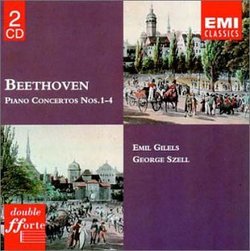 | Beethoven, Gilels Piano Concertos 1-4 Genre: Classical
|
Larger Image |
CD DetailsSimilar CDs
Similarly Requested CDs
|
CD ReviewsFantastic! Kalle Kuusava | Lahti, Finland | 08/17/2000 (5 out of 5 stars) "Gilels recorded Beethoven's concertos three times, and this set with Szell is simply the best. Recordings are made in the 60's, and Gilels was in his best "Beethoven-form" then. When he was younger, he preferred to super-virtuoso romantic pieces, but from 1950's he started to play Beethoven more and more. These interpretations are quite plastic, Gilels plays this like Viennesse-classical pieces should be played: everything is clear, but nothing is exaggrerated. And sound is so Gilels-like: Bright and metallic (in a positive meaning!!)! Szell proves an excellent accompanist with his superb Cleveland orchestra. A conductor who was especially famous for his interpretations of Viennese-classics. Gilels gives room to delightful solos by flute/oboe here and there - one gets a feeling that this is a chamber orchestra playing with piano in it! Not just orchestra against the piano. The tonal range is marvellous - all the different sections of the pieces can be easily understood. This double-CD contains concertos no 1-4, there is also another same-like double-CD from EMI, and that includes the fifth concerto plus Dvorak's 8th symphony and Slavonic dances!! That double-CD is also with Gilels/Szell. Unfortunately Amazon.com doesn't have it on their list, but it's easily found in classical cd stores. So, don't read this anymore, go and buy!!" Poetry in sound C. W. Lee | 10/16/2000 (5 out of 5 stars) "I cannot eulogize enough about the great Emil Gilels. His lyrical pianism, his incredible technique and unimpeachable musicality, his rare blend of power, subtlety and finesse... Listening is believing! Truly, his marvelous playing evokes feelings and reaches parts of the soul that few other pianists can. Gilels once said that he will only play music that he personally liked. He must have loved the Beethoven piano concertos then, since he recorded them more than once. The different recordings are all superb and special, not mere clones of one another. These ones from 1968 are splendid accounts. They are more "restrained" than his earlier interpretations, in the introspective and spiritually serene style of his playing which he developed in the latter half of his life. Conductor Szell is on the same wavelength as Gilels. The renowned Cleveland plays beautifully, and integrate perfectly with the pianist. Gilels's sound has that mellow charm, with that legendary tone quality and clarity, impeccable phrasing, and the sense of underlying controlled power and energy. And his tempo is just wonderful. Gilels sets off on the jaunty #1 C-major with rhythm and elegance, and the rendition of the following Largo is so profoundly expressive, so unbearably sublime! His accounts of the next three concertos are equally supreme stuff! It's a pity that the 5th concerto cannot be included here too, due to lack of disk space, but it's easily available, as are Gilels's other Beethoven piano concerto recordings with Kurt Sanderling or Leopold Ludwig, among others. Get your hands on them, for I am sure that anyone after listening to Gilel's performances will take a part of it in their heart forever, and what can be nicer than that?" A variable set, but with brilliant high points from Gilels Santa Fe Listener | Santa Fe, NM USA | 06/08/2006 (3 out of 5 stars) "I can remember the enormous anticipation when Szell and Gilels partnered for these recordings in the Sixties. How could a famous Beethoven conductor and a renowned Russian virtuoso miss? They did, for the resulting recordings seem quite underwhelming. We didn't know at the time that Szell was ill and declining, which must account for the foursquare, underplayed accompaniments.
concerto #1 starts off with nothing like Beethoven's Allegro con brio marking. The tempo is slack, and so is gilel's wan playing, cmpletely without spark. The very measured Largo, slower than any other I've encoutnered, is sustained by Gilels' amazing touch and his ability to carry a long line. The Rondo finale is up to tempo, but Gilels still osunds tame and Szell arouses not much excitement. Overall, a miss. Concerto #2 starts off with a bit more energy, but Szell is determined to be polite--there's no edge or elan here. Gilels does better, giving us a Mozartean reading that's very appealing on its own terms. Szell makes the lovely Adagio sound solemn, even mournful, which is novel. Gilels adapts beautifully, offering a mesmerizing melody line ornamented with grace and finesse. If the finale weren't so recessive and underplayed, this would be quite a nice performance. Listeners who accept a dainty approach will like this better than I did. Concerto #3 is usually played as the first truly Beethovenian concerto, a smaller version of the heroic Emperor. Szell and Gilels disagree. Their approach is as delicate and Mozartean as in the early works, a strange choice. Beethoven's opening Allegro con brio is ignored in the first movement, the Largo stretched out to great length in the second. Gilels continues to hold together any slow tempo with his great control and innate melodic sense. The finale has a touch more energy--Szell wakes up for the first time--and Gilels gives us amazingly even passagework, but overall this is a quirky Third, unlike any other. Concerto #4 is the masterpiece of the set, and Szell had already made an outstanding recording of it with Leon Fleisher. That one was decidedly classical rather than romantic in style. So is the remake, but his phrasing is quite slack in the opening movement (which is taken to speed; admirers would call it refined and reserved). Gilels seems to get sleepy as a result, despite some high points. The slow movement, which is supposed to be like Daniel (the piano) in the lions' den (the orchestra), finds the beasts defanged, and Gilels is overly polite. The finale begins almost daintily; Gilels is all pearly lightness, which is lovely, even though one misses the kinetic excitement this movement should possess. Overall, a disappointing reading. As you can see, I'm not in accord with the raves that this set has gotten from other reviewers. Actually, it's hard to find much praise for these recordings outside Amazon--one has to turn to earlier recordings from both Szell (Sony) and Gilels (Testament) to hear them at their best in these pieces. " |

 Track Listings (6) - Disc #1
Track Listings (6) - Disc #1